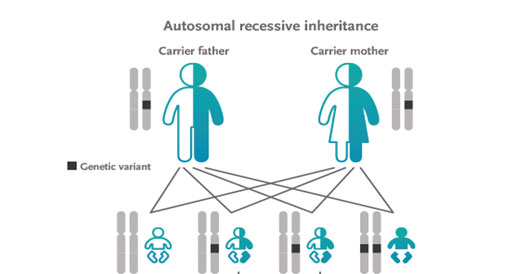WHY PARENTS SHOULD BE SCREENED FOR MUTATIONS AND COPY NUMBER VARIATIONS BEFORE PLANNING IVF
Over 50 million people suffer with single gene disorders in India. Over 1 million babies are born with genetic disorders each year and over 20-30% of all deaths are due to genetic disorders. It is known that 1 out of 100 babies are born with a genetic disorder.
Our NGS based carrier screening test offers highly focused and cost effective test to screen for diseases and genetic variations. Some of the most common as below and many more in the list are being carried out in clinical samples.
- Beta-Thalassemia
- Cystic Fibrosis
- Amino Acid Disorders
- Congenital Adrenal Hyperplasia
- Sickle Cell Anemia
- Spinal Muscular Atrophy
- Many more in the list

Chromosomal Microarray testing of Parents:
Miscarriages are one of the leading causes of infertility in India and it is growing astronomically every year. Only 50% of the miscarriages are known to have numerical or translocations of chromosomes that are possibly causing repeated miscarriages in women. However, there is no etiology for the rest of the 50% of the miscarriage cases known today. Several research studies are conducted and looked for genomic aberrations in parental genome. There are several evidences reported in scientific publications that the non-pathogenic micro-deletions and duplications in parental genome could become pathogenic genomic variations in the fetus ultimately causing fetal miscarriages or still birth babies.
In our experience, over 200 couples who have had more than one miscarriage were screened using whole genome microarray and found several micro-deletions, duplications and loss of heterozygosity in the parental genome. We were able to associate these chromosomal aberrations to the cause of miscarriages. This study is in the process of publication.
Scientific Evidence:
https://www.ncbi.nlm.nih.gov/pmc/articles/PMC4518138/
1 Eloi Mercier,2 Ying Qiao,1 Mary D. Stephenson,3 and Evica Rajcan-Separovic1,Genomic characteristics of miscarriage copy number variants. Mol Hum Reprod. 2015 Aug; 21(8): 655–661.
Who should do the test?
- Couples who have had more than one miscarriage
- Couples planning a family should ideally be screened before they conceive or as soon as possible after conception, to allow all available reproductive options to be considered.
- Couples who are consanguineously married
- Couples having a family history of miscarriages
Children with developmental delays or previous children who died young could indicate a genetic disorder running in the family

